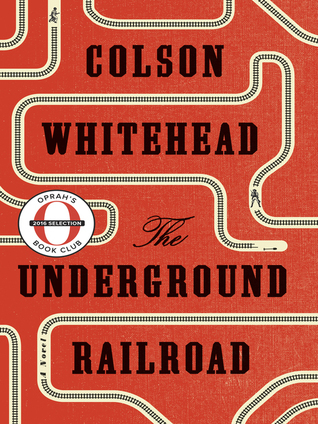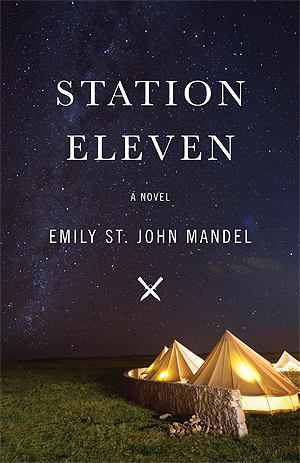
Fall is officially in the air, though summer hasn’t quite died off entirely. We’re in that thin space between seasons, and though it means the weather shifts quickly and dramatically (made worse by human-drive climate change) and the freshness of summer is slipping toward the chills of winter, it also means the leaves are changing color, blushing a bit of beauty into a landscape that will soon be covered in white.
It might be no surprise, then, that the stories on tap for September’s flight are rather concerned with bleak settings and how people confront them. How they seek to come together to create warmth and hope and the chance for healing. The stories are, by and large, concerned with relationships and family, focusing on how people helping people, people respecting people, needs to be at the heart of any movement to survive. Because really, survival is about more than reproduction, more than merely delaying the decay that’s led to the problems in the first place. Survival is about balance and trust and harmony, and these stories all circle around people creating situations where they can reach towards something better, something more whole, or else being confronted by the rot at the heart of their philosophies, and having to see where those corrupted roads lead.
The stories very much run the gamut between joyous and crushing, but each one is beautiful in its own way, and each brings its unique flavor to this early autumn tasting experience. So settle in and raise a glass, and let’s get to it. Cheers!
Tasting Flight - September 2017
“Pan-Humanism: Hope and Pragmatics” by
Jess Barber and
Sara Saab (
Clarkesworld)
Notes: Expertly balanced between darkness and light, the story tastes like a breath of fresh air after a lifetime of smog, warms and lifts and offers a hope of healing.
Pairs with: Amber Bock
Review: Amir and Mani grow up in a Beirut strained by climate change, by water-scarcity, by the fear of doing greater harm. Both characters, because of their world and because of the weight of history, know only too well the cost of possession, of privatization. Both enter into service to try and heal the planet and bring water and hope and life back to a world that is on the brink. At the same time, they find themselves drawn to one another, and yet mindful that how humans treat the world, and how they treat each other, is linked, and that treating people like possessions, just like treating the Earth like a possession, leads only to corruption, deprivation, and loss. The story, through the exploration of these characters lives and relationships, begins to build a picture of what it might take to make the world work better. It stresses that it’s not technology alone that will save us, because without a philosophy to match, the exploitation and consumption will continue to escalate, pushing past all obstacles and barriers and safeguards. I love how the story implies that humanity needs a different framework in order to respect humans and the environment, in order to put cooperation and compassion ahead of personal ambition or passion. And it is a beautiful story that touches on how love still works in this philosophy, not quite in the same way that we now expect but still in profound and powerful dimensions that allow Amir and Mani’s story to be one of hope and healing and triumph, even as it is often about longing and distance as well. It is an amazing piece, and one of my very favorite stories of the year, period.

“The Last Spell of the Raven” by
Morris Tanafon (
Glittership)
Notes: With a pour as dark as night and thick as blood, a taste of smoke and grief slowly solidify and deepen into something hungry, mysterious, and devastating.
Pairs with: Imperial Stout
Review: Galen is a magician, one of the rare few who can cast spells, and most of his life is shaped by this one aspect of him, this one thing that makes him valuable to his government and their ambitions. A magician only gets five spells, though, and with the casting of the last they die. Magicians are supposed to use two of these spells in service of their nation, and the rest are sort of...bonuses. Galen isn’t exactly careful with his spells though, casting his first by accident and then losing the others. But more than that, the story shows just what Galen gives up because of what he fears to lose. It’s a piece that explores how he doesn’t fit in to the normal mold, but also doesn’t quite know how to break out of it. It captures the sense of his yearning, of his lust for life and love and connection, and how the world that he lives in and the exploitation and militarism that it operates by poisons everything it touches. It erodes every act of kindness and compassion that Galen does, pushing him towards isolation, grief, and loss. And yet even as he becomes a sort of symbol of what not to do and be in the eyes of his country, he also becomes a symbol for those who don’t fit in, and through that there comes a certain amount of...not healing, exactly, but something more like meaning. For his life and for his regrets—that he can show others that being different is possible, and that maybe if they embrace it, or act on it, they’ll be able to avoid the losses that he suffers. It’s a wrenching and deep story about value and about caring about people. Even when it’s not what’s valued in society. It’s about how the system grinds people down, but even so that small kindnesses are not only possible, but incredibly important.
“On The Other Side of the Sea” by
Nerine Dorman (
Omenana)
Notes: Bitterness is cut by a warmth that gives a shine to this story’s golden pour, with a feeling of loss like an open wound slowly fading into something alive and hopeful.
Pairs with: Session Ale
Review: This is a story of sisters, the narrator the older and Lindi the younger. Together they carry the weight of their mother’s ashes across a mostly-barren landscape, hungry and afraid and injured, hoping to reach the fulfillment of a promise, that if they reach the sea there will be salvation. A hope that their mother told them and one that they cling to, for the world has fallen to the point where civilization is scarce and most people are cruel and eager for a target for their anger. For all the setting is bleak, though, and the situation harsh, the story for me is very much about kindness and trust and hope. The narrator, though, is distrustful and resourceful, concerned most with fulfilling her mother’s wish and getting her sister to safety. And I like how the conflict is hazy, filtered through the perception of the narrator, a child, the entire situation one of immediacies. She distrusts because of how dangerous it is, because she thinks there is this thing waiting for them, and yet as the story moves it reveals the full scope of the damage and destruction that has been done, the lies that were told to comfort, that were told because of the desire for there to be a better elsewhere, a place to escape to. And yet I like that the story shatters that hope without shattering hope itself. That it refuses to buy into the idea that escape is the only option, and begins to come around to the idea that there is something to gained in community and kindness, that what is truly required here is a situation where these children can trust and not be betrayed. And that with that, progress can begin again, and safety can be built, and maybe, someday, healing can be possible. But that it begins with people, and taking that step to try and trust, despite everything.
Notes: Brash and fun, the crisp, clear notes lead the taster down into a subtler and celebratory experience of sun, shadows, and friendship.
Pairs with: Pear Hard Cider
Review: When the family cat, Mr. Whiskers, needs a new bag of dry food retrieved from the basement, it falls to the family’s youngest member, Melanie, to brave the strange landscape that her imagination makes of the darkness and uncertainty she finds there. Basements are places rich in fear (at least, they were for me growing up), and the story captures just why, showing how the weird neglect and distance from the rest of the house imbues the area with an almost sinister aura. There is a palpable darkness to the nether realm of Melanie’s basement, and yet there’s also a sense of fun and adventure and possibility there as well. Melanie, in plunging down into the dangerous depths of the space, is also escaping in some ways the rules of the world above, the strict necessity that things maintain their proper place. The basement is where fantasy and reality can mix and mingle, and it makes it dangerous but it also makes it in some ways freeing, a place where Melanie can make new friends and have daring dos and have victories of her own. It’s a semi-controlled environment where she can build her experience and confidence and be powerful and connected that isn’t already infected by the constraints of the world outside, of gender rolls or the more crushing forms of horror. Nor is it completely isolating because it taps into the nebulous magic of basements, into a place that, if inhabited by monsters, might be inhabited by friendlier sorts as well. And I just love the feel of the piece, the humor and imagination and the push and pull of revulsion and adventure that the basement embodies. It’s fast and tight-paced and it’s got a cat named Mr. Whiskers, so probably you’ll love it. I know I do!
Notes: Capturing the heart of America, the complex notes of clear skies, golden wheat, and ignored intolerance, the flavor is almost smooth in its naked bitterness.
Pairs with: American Pale Ale
Review: The future this story paints is one where androids have finally gotten a certain amount of rights. Where they can work and earn money and where they’re supposed to be protected by the law, citizens of America. And while there is fear of extreme prejudice against androids, it comes from outside the urban centers where the androids must live in order to be connected to the grid that keeps them powered and alive. The threat is always framed as being rural, as being outside. And the story itself focuses on one android, Adéle, who was bought to be the sister to the narrator of the piece, and who has been living without a lot of direction since her brother went away to school. She gets a job at a small shop, but her presence isn’t exactly treated well, as people view her as a threat. Androids steal jobs. Androids think they’re better than everyone. Androids aren’t real people. The story looks at how these things express themselves within this situation, how Adéle refuses to play into the expectations people have about her, how she refuses to smile, to make nice. She expresses herself as she is, and the reaction she tends to get isn’t very encouraging. For me, the story becomes about how we think about difference and think about humanity and, ultimately, where we see extremism. For the narrator, he thinks of bigotry as something that only exists in caricature, the cartoon racism that people associate with isolated loners. He doesn’t see what exists, that bigotry and hate live everywhere we see difference, where we see people as less than fully human. In rural areas yes, but also in urban centers and even in the narrator’s own heart. It’s a deeply unsettling and impacting story that leaves an emptiness in its wake and demands we all pay attention.

“Stories We Carry On The Back Of The Night” by
Jasper Sanchez (
Mithila Review)
Notes: Complex and alluring, with a nose of sunrise on an alien world and a first sip of betrayal tinged with love, the taste gradually resolves into something strong, resilient, and powerful.
Pairs with: Baltic Porter
Review: Sam is a young boy caught between the pain and betrayal of the world he lives in, our world, where his gender and identity are often violated, and an alien world where he can be fully himself, but where he would have to give up being with his father, who is about the only person Sam knows who has treated him with dignity and respect. It presents something of an impossible decision to make, where Sam has to weigh being treated like who he is by an entire society of people against the love he has for his father. And the story does a great job of showing the complexity and weight of this choice, and I love how it ultimately reveals the options as somewhat misleading. There is this lovely use of ritual and harm within the story, that allows Sam to see the ways that this alien world isn’t quite as rosy and accepting as they seem. That they, too, have this strong enforcement of ritual and societal harmony, and any straying outside of that are punished, and punished harshly. That for all that Sam himself might be accepted for being a trans man, he wouldn’t necessarily be safe, because it’s not a society that truly trusts its citizens, or truly protects them. Sam is left having to navigate the situation where there is no perfect place. That even the world that promises to accept his gender would demand he hurt, would demand he give up something important. And I love how he’s able to see what a futile thing that would be, that any society demanding that he change for it is not a society that deserves his loyalty. That what does deserve his loyalty and trust are those who have earned it, who have treated him always as a person first, and it’s just a beautiful story that explores identity and family and hope in the face of injustice.
---
POSTED BY:
Charles, avid reader, reviewer, and sometimes writer of speculative fiction. Contributor to Nerds of a Feather since 2014.
 How It Stacks Up: Watching this movie was kind of a joy. I realize that both versions share the same source material, so the 1963 version isn't directly inspired by the 1940 version, but that both of them feature Vincent Price in the lead, in two different roles, in two very different films made over 20 years apart was a lot of fun to see. This 1940 version hews much more closely to the source material, and any trace of the supernatural is circumstantial at best. Hawthorne was vexed by his family's involvement in the Salem Witch Trials two centuries earlier, and so his characters need not turn to the supernatural to do evil (even if they do invoke it for personal gain). There's no blood, really, and no horror, come to that, apart from how basely a man may treat his (literal) brother in the name of greed, so this film falls much more in line with films like the subsequent Portrait of Jennie or the Orson Welles/Joan Fontaine Jane Eyre (both the same decade), which you might call supernatural-adjacent, Old Hollywood romances.
How It Stacks Up: Watching this movie was kind of a joy. I realize that both versions share the same source material, so the 1963 version isn't directly inspired by the 1940 version, but that both of them feature Vincent Price in the lead, in two different roles, in two very different films made over 20 years apart was a lot of fun to see. This 1940 version hews much more closely to the source material, and any trace of the supernatural is circumstantial at best. Hawthorne was vexed by his family's involvement in the Salem Witch Trials two centuries earlier, and so his characters need not turn to the supernatural to do evil (even if they do invoke it for personal gain). There's no blood, really, and no horror, come to that, apart from how basely a man may treat his (literal) brother in the name of greed, so this film falls much more in line with films like the subsequent Portrait of Jennie or the Orson Welles/Joan Fontaine Jane Eyre (both the same decade), which you might call supernatural-adjacent, Old Hollywood romances.






















